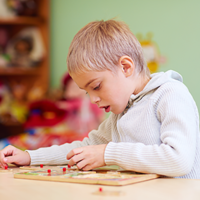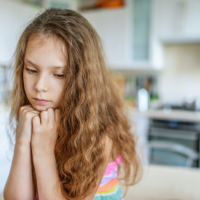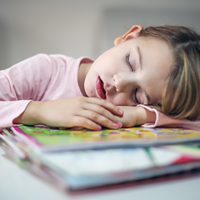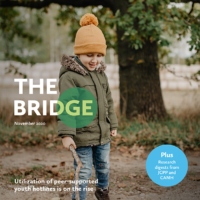Anxiety
-

Finding strength from a bleak year
Professor Andrea Danese explains about the KeepCool project.
Read more -

‘Cool Little Kids’ helps reduce later anxiety symptoms but not broader internalising problems
Children with a shy/inhibited temperament are at risk of developing internalising problems later in life.1 Unfortunately, the responses to such behaviours by some parents — such as overprotective or harsh parenting — can add to this risk.
Read more -

Sleep, and the Relationship with Anxiety and Depression in Adolescence – Dr. Faith Orchard
Talk from Dr. Faith Orchard, University of Sussex. This is free to watch, ACAMH members can now receive a CPD certificate for watching this recorded lecture.
Read more -

‘CAMHS around the campfire’ – Sleep, anxiety, and depression
‘CAMHS around the Campfire’, is our a free live online journal club. This session was on Dr. Faith Orchard’s JCPP paper on sleep, anxiety, and depression, recorded on Thursday 10 December 2020. Please visit our Events page for details of upcoming sessions. ACAMH members can now receive a CPD certificate for watching this recorded lecture.
Read more -

Cognitive inflexibility contributes to both externalising and internalising difficulties in ASD
Children with autism spectrum disorder (ASD) commonly experience internalising and externalising symptoms, but the underlying cognitive mechanisms are unclear. In their latest study published in the Journal of Child Psychology and Psychiatry, Ann Ozsivadjian and colleagues examined the role of three cognitive factors that might contribute to these difficulties.
Read more -

Do children with social anxiety disorder benefit from social skills training?
Social anxiety disorder (SAD) in children can be difficult to treat, as evidenced by the varied outcomes reported post-treatment.1,2 Although childhood treatments for SAD commonly involve at least some social skills training,3 it isn’t clear whether children with SAD have particular difficulties with social skills. There is therefore a need to better establish whether social skills are an effective target for treating SAD.
Read more -

Consistency is needed when measuring and reporting outcomes in child and adolescent anxiety disorders trials
This year, Cathy Creswell, Maaike Nauta and colleagues from around the world convened a series of international activities based around measuring and reporting in treatment trials for child and adolescent anxiety disorders.
Read more -

Insufficient sleep might affect children’s emotional health
Data from a new study published in the Journal of Child Psychology and Psychiatry suggest that insufficient sleep can affect emotional health in children. The study, conducted by Candice Alfano and colleagues, assessed the impact of sleep duration on different aspects of emotion in a cohort of 53 children aged 7-11 years old.
Read more -

‘Self‐reported sleep patterns and quality amongst adolescents: cross‐sectional and prospective associations with anxiety and depression’ – video abstract
Video abstract from Dr. Faith Orchard on her paper in JCPP on ‘Self‐reported sleep patterns and quality amongst adolescents: cross‐sectional and prospective associations with anxiety and depression’.
Read more -

November 2020 – The Bridge
The research featured in this issue covers a wide range of topics relevant to our work with young people, including neurodevelopmental, emotional, and behavioural disorders, their comorbidity, and their links with functioning and quality of life.
Read more